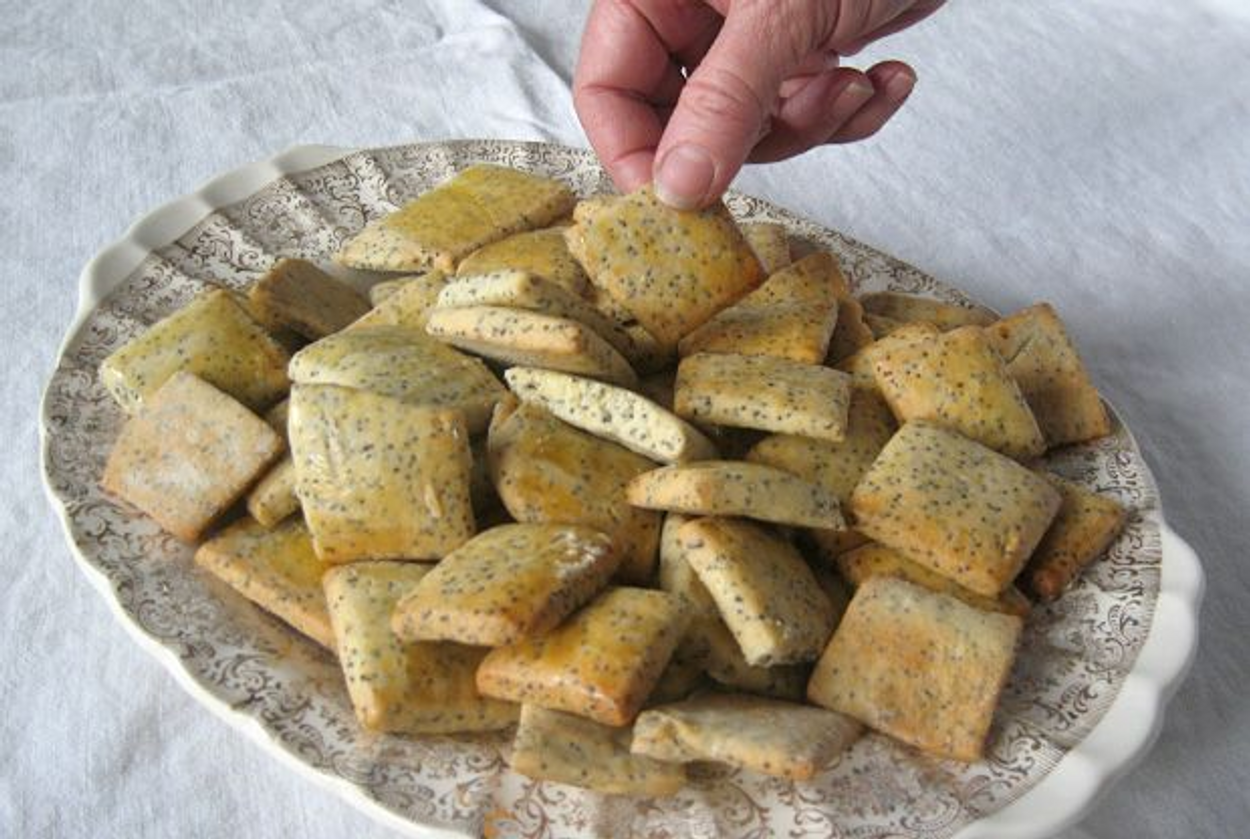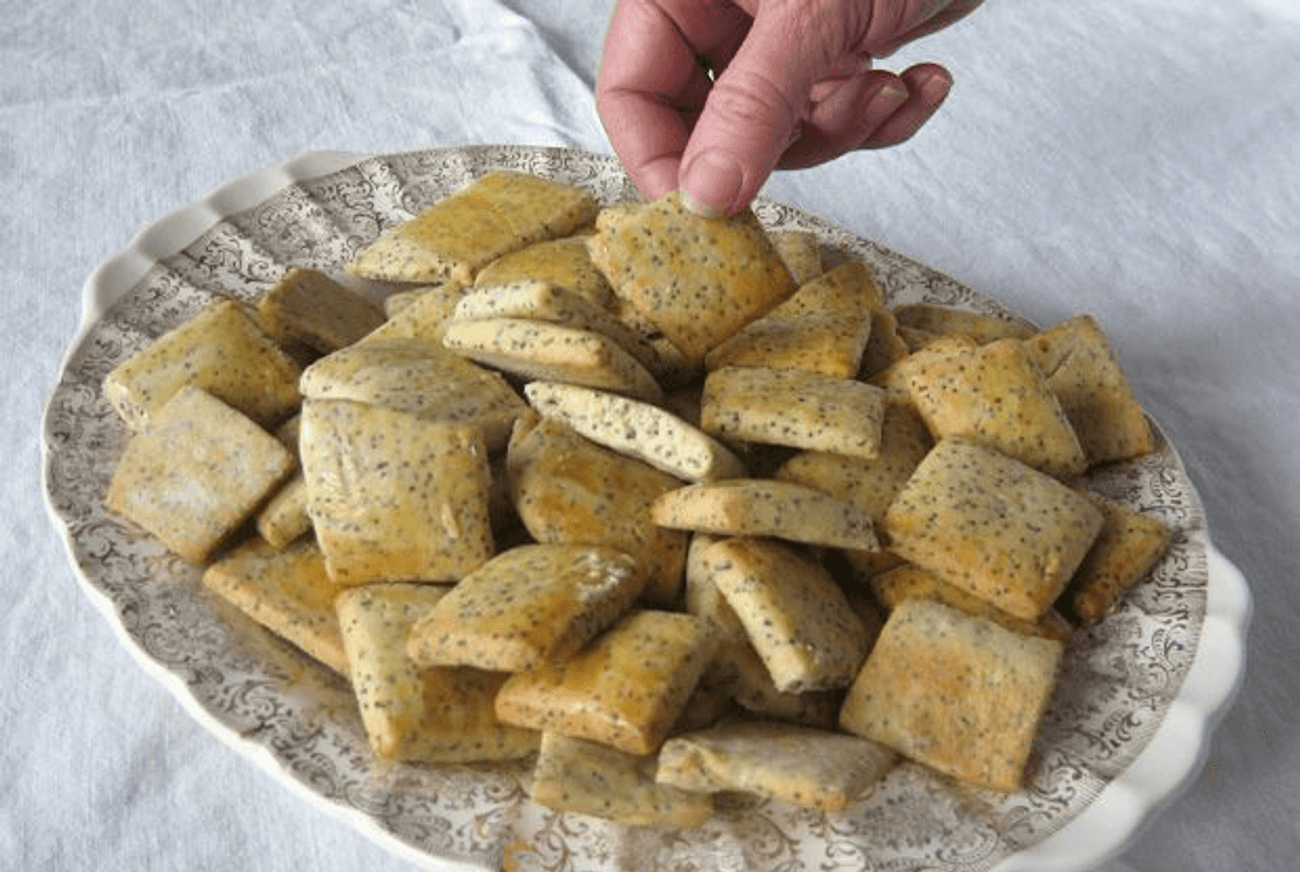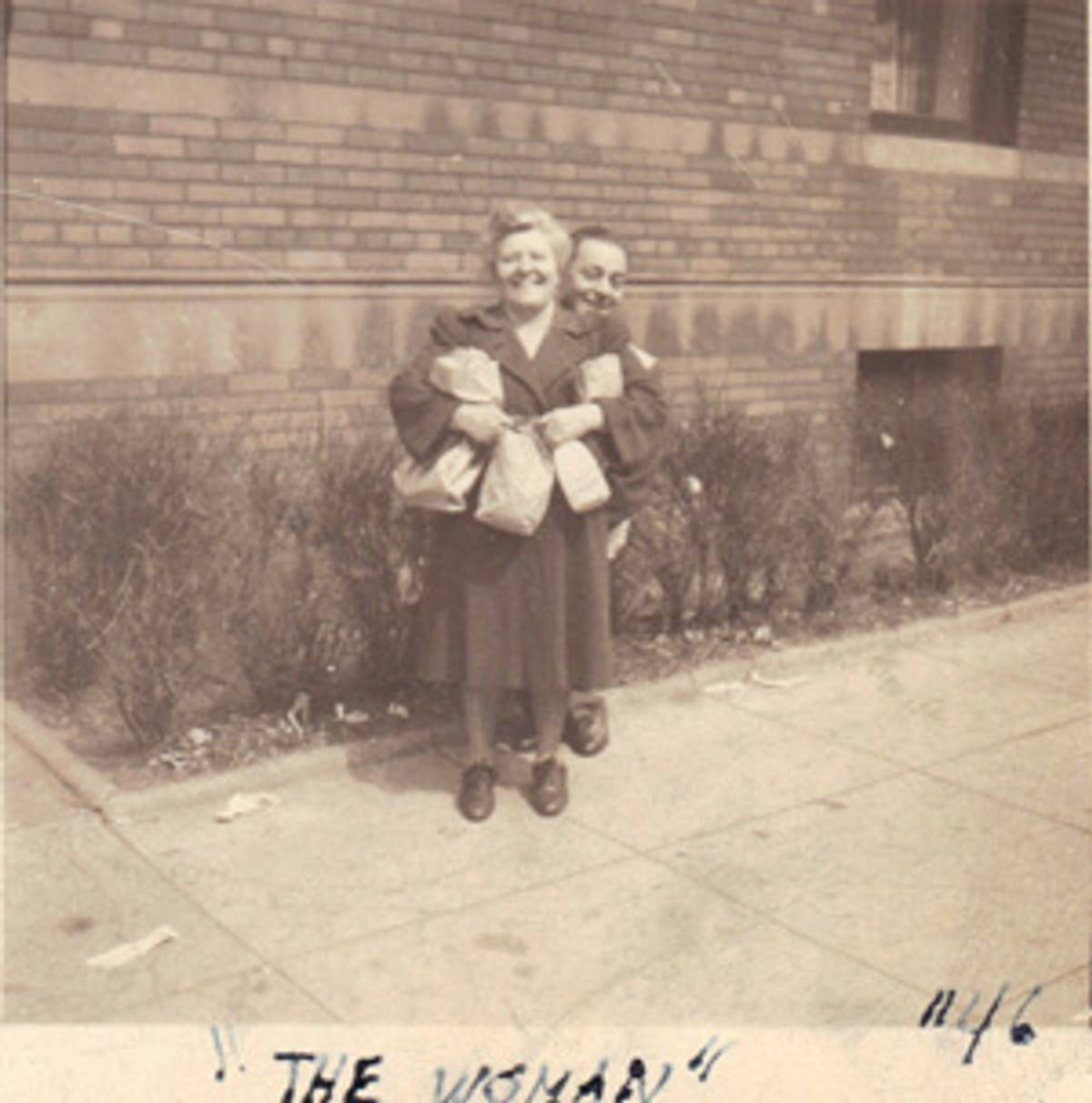Pursuit of Poppyness
My father loved my grandmother’s poppy-seed cookies, or mohn kichlach, but she never made them for me. Could I duplicate her recipe?




“No one who cooks, cooks alone,” writes Laurie Colwin, and there are times when my tiny kitchen can become quite crowded, especially when I’m baking. It’s then that I’m joined by the ghosts of my father and my paternal grandmother, Bessie, who, in addition to her claim that she was once a great beauty, was also an expert baker, having been an apprentice to a master in her native Poland before immigrating to this country as a young woman.
My father often reminisced about his mother’s cooking. No one made blintzes as pillowy. She rolled strudel dough on the kitchen floor until it was so thin you could read the newspaper through it. During the Great Depression she could stretch the humblest of ingredients—offal and cheap cuts of meat—into a gourmet feast to feed her family of seven.
Yet Bessie was not a doting grandmother, happily bustling about her kitchen, something delectable always going into or coming out of the oven. By the time I got to know her, she was bitter and tired, her mouth frozen in a frown, parsimonious with affection. Worst of all, she refused to share her recipes. “They go with me to my grave,” she said, when I begged for her secrets while sneaking bits of challah dough. With a slap on my knuckles, she changed the subject by grabbing my ponytail and dragging me to the sink to wash my face with milk. “This is the secret of my great beauty,” she said, a rather alarming assertion coming from a woman who may once have been a looker but certainly was no longer.
Is there a daughter alive who doesn’t crave her father’s approval, no matter if he’s a scoundrel or a saint? Sometimes I think my pleasure in cooking and my insistence on perfecting the foods of my father’s youth derive from this primitive need, though my dad is long dead. And while my taste memory tells me I’ve duplicated certain of Bessie’s specialties successfully, I will never know if I’ve succeeded with the poppy-seed cookies my father yearned for most of all. They slipped off of Bessie’s baking play-list before I had the chance to try them.

Mohn kichlach, poppy-seed cookies, originated with Eastern European Jews. These cookies were traditionally baked for boys heading off to war because they remained fresh for weeks. According to my father, they were small and hard, not too sweet, and utterly addictive. My father last had them when he and my mother embarked from their home in the Bronx on a cross-country drive shortly after they married in 1948. Bessie, who lived nearby, packed a shoebox full of them, with instructions for my parents to deliver the box to a relative in California.
The cookies didn’t make it out of Pennsylvania.
Over the years I accumulated several recipes for mohn kichlach, from Jewish-organization and other cookbooks, but I resisted making them because my father was no longer around to give a thumbs up. Then last summer, in anticipation of a roughly five-hour drive with my husband from New York City to the Finger Lakes region of Western New York, I decided to experiment. Some of the recipes I tried were for drop cookies, others for rolled. One included chopped onions, for a kind of cracker-bialy hybrid. I rejected one recipe that called for an alarming one cup of oil; the cookies slid around the baking sheet and were so flabby and unappealing that I slid them right into the garbage. I finally settled on a rolled version with more poppy seeds and less sugar than most. For some reason—a message from beyond?—I imagined these were close to my grandmother’s.
While I can’t know for sure if I succeeded, I do know this: My cookies didn’t survive New Jersey.
Stacey Harwood is a poet and essayist who lives in New York City.
Stacey Hardwood’s poppy-seed cookies.
2 cups flour
1/2 cup sugar
1/4 cup poppy seeds
3/4 tsp baking powder
pinch of salt
2 eggs at room temperature
1/3 cup vegetable oil
2 tablespoons ice water
1 egg yolk thinned with water for a thin egg wash.
1. In the bowl of an electric mixer fitted with a paddle, beat the eggs and sugar on medium speed until light yellow. Continue beating while adding the oil in a stream. Beat until the oil is incorporated.
2. Combine the remaining dry ingredients in a bowl and with a fork or balloon whisk mix so that the poppy seeds are evenly distributed throughout.
3. With the mixer running on low speed, add the dry ingredients to the egg mixture. Slowly increase the speed to medium and beat until the dough just comes together. Add ice water if necessary, a tablespoon at a time, to make a pliant dough.
4. Turn the dough on to a piece of cling wrap, form it in a ball and refrigerate for an hour. When ready to bake, preheat the oven to 350 and cover a cookie sheet with parchment. On a floured board and with a floured rolling pin, flatten the dough and roll it into a rectangle. Using a knife or pizza cutter, cut the dough into small squares. Brush with egg wash and place on cookie sheet. Bake in the middle of the oven for 10-12 minutes or until slightly puffed and golden. Cool on a wire rack. The cookies will harden as they cool.
Yield: 36 cookies.
Stacey Harwood is a poet and essayist who lives in New York City.